10 Best Herbal Capsules For Tonsillitis

Herbal capsules for tonsillitis are natural supplements that may help alleviate symptoms such as sore throat and inflammation.
Common ingredients include echinacea, garlic, and ginger, which are believed to have antimicrobial and anti-inflammatory properties. These capsules are often used as an alternative or complementary treatment to conventional medicine, particularly for mild to moderate cases. While they may provide some relief, their effectiveness can vary, and it is important to consult a healthcare professional before use.
Overall, herbal capsules offer a potential natural option for managing tonsillitis, though they should not replace medical advice or treatment when necessary.
Table of Contents
- 1. Ginger (Zingiber officinale)
- 2. Thyme (Thymus vulgaris)
- 3. Black elderberry (Sambucus nigra)
- 4. Echinacea (Echinacea purpurea)
- 5. Stinging nettle (Urtica dioica)
- 6. St. john's wort (Hypericum perforatum)
- 7. Geranium (Pelargonium graveolens)
- 8. Licorice (Glycyrrhiza glabra)
- 9. Salvia (Salvia officinalis)
- 10. Rosemary (Rosmarinus officinalis)
1. Ginger (Zingiber officinale)

Zingiber officinale, commonly known as ginger, has been traditionally used for its anti-inflammatory and antimicrobial properties, making it a potential natural remedy for tonsillitis.
When formulated into herbal capsules, ginger can help alleviate symptoms such as sore throat, swelling, and inflammation of the tonsils by reducing oxidative stress and inhibiting the growth of harmful bacteria. Studies suggest that ginger contains compounds like gingerol and shogaol, which may support immune function and reduce pain associated with throat infections. These capsules are often preferred for their convenience and ease of consumption, especially for individuals seeking alternative or complementary treatments.
However, while ginger may offer supportive benefits, it should not replace prescribed medical treatments for severe or persistent tonsillitis.
2. Thyme (Thymus vulgaris)
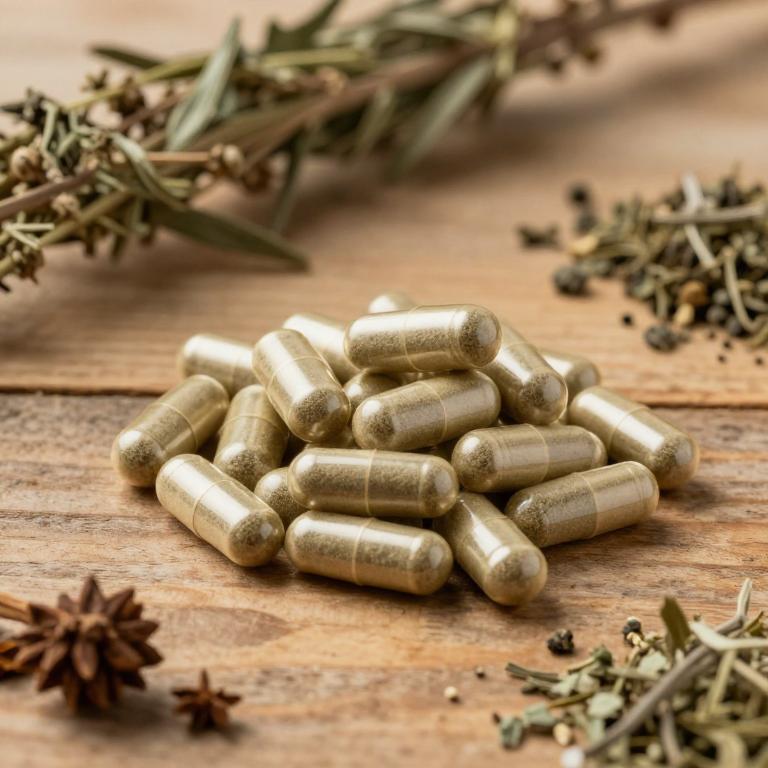
Thymus vulgaris herbal capsules, derived from the thyme plant, are traditionally used to support immune function and may offer relief for symptoms of tonsillitis.
These capsules contain essential oils and phytochemicals that have antimicrobial and anti-inflammatory properties, which can help reduce throat inflammation and combat bacterial infections. While not a substitute for medical treatment, they may serve as a complementary therapy to alleviate discomfort and shorten the duration of tonsillitis. It is important to consult a healthcare professional before using these capsules, especially if symptoms persist or worsen.
Overall, Thymus vulgaris capsules are a natural option that may support the body's healing process when used appropriately.
3. Black elderberry (Sambucus nigra)
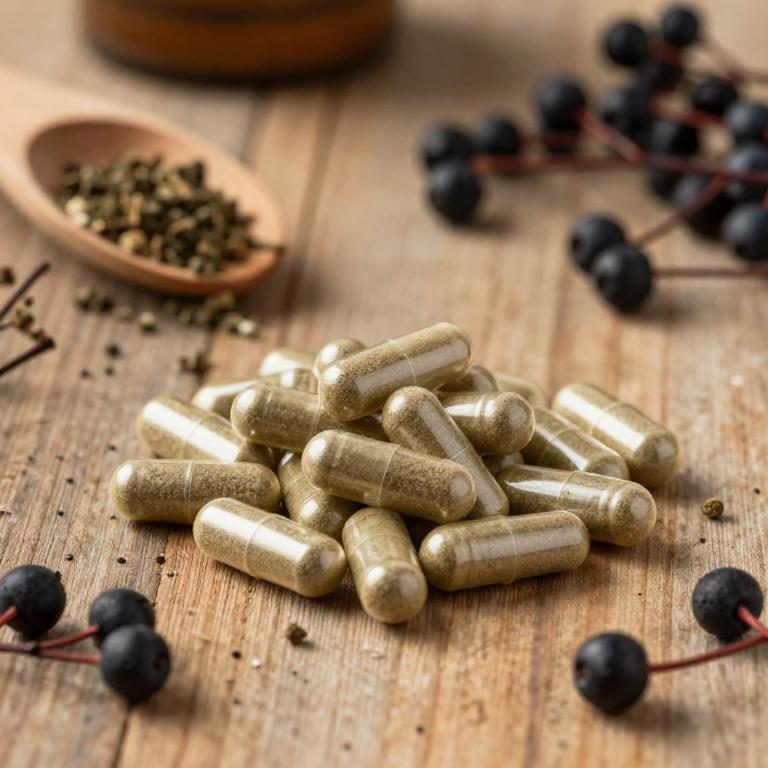
Sambucus nigra, commonly known as elderberry, is a traditional herbal remedy that has been used for centuries to support immune health.
When formulated into herbal capsules, it may offer potential benefits for individuals suffering from tonsillitis due to its high concentration of antioxidants and anti-inflammatory compounds. These properties may help reduce the severity and duration of symptoms associated with viral or bacterial throat infections. However, it is important to note that while some studies suggest its immune-boosting effects, more clinical research is needed to confirm its efficacy specifically for tonsillitis.
As with any supplement, it should be used under the guidance of a healthcare professional, especially for those with existing medical conditions or taking other medications.
4. Echinacea (Echinacea purpurea)

Echinacea purpurea, commonly known as purple coneflower, is a popular herbal remedy often used to support immune function and reduce the severity of respiratory infections, including tonsillitis.
Herbal capsules containing Echinacea purpurea are typically standardized to ensure consistent levels of active compounds like alkamides, caffeic acid derivatives, and polysaccharides, which are believed to enhance the body's immune response. Some studies suggest that Echinacea may help shorten the duration of colds and reduce the frequency of upper respiratory tract infections, though its effectiveness for tonsillitis specifically remains a topic of ongoing research. When used as a supplement, Echinacea purpurea capsules are generally considered safe for most adults, although they may cause mild side effects such as gastrointestinal discomfort in some individuals.
It is important to consult with a healthcare provider before using Echinacea, especially for those with autoimmune conditions or who are taking other medications.
5. Stinging nettle (Urtica dioica)

Urtica dioica, commonly known as stinging nettle, has been traditionally used for its anti-inflammatory and immune-boosting properties.
Herbal capsules containing Urtica dioica are often used as a natural remedy for tonsillitis due to their ability to reduce inflammation and soothe throat irritation. These capsules may help alleviate symptoms such as sore throat and swelling by supporting the body's natural healing processes. However, it is important to consult a healthcare professional before using them, especially if you are on other medications or have underlying health conditions.
While some studies suggest potential benefits, more research is needed to fully understand their efficacy in treating tonsillitis.
6. St. john's wort (Hypericum perforatum)

Hypericum perforatum, commonly known as St. John's Wort, is traditionally used for its potential anti-inflammatory and antimicrobial properties.
While it is more widely recognized for treating mild depression, some studies suggest it may have therapeutic benefits for respiratory infections like tonsillitis. Herbal capsules containing Hypericum perforatum are often used as a complementary therapy to reduce inflammation and soothe sore throats associated with tonsillitis. However, it is important to consult a healthcare professional before using these capsules, as they may interact with other medications.
Despite its traditional use, scientific evidence supporting its efficacy for tonsillitis remains limited and requires further research.
7. Geranium (Pelargonium graveolens)
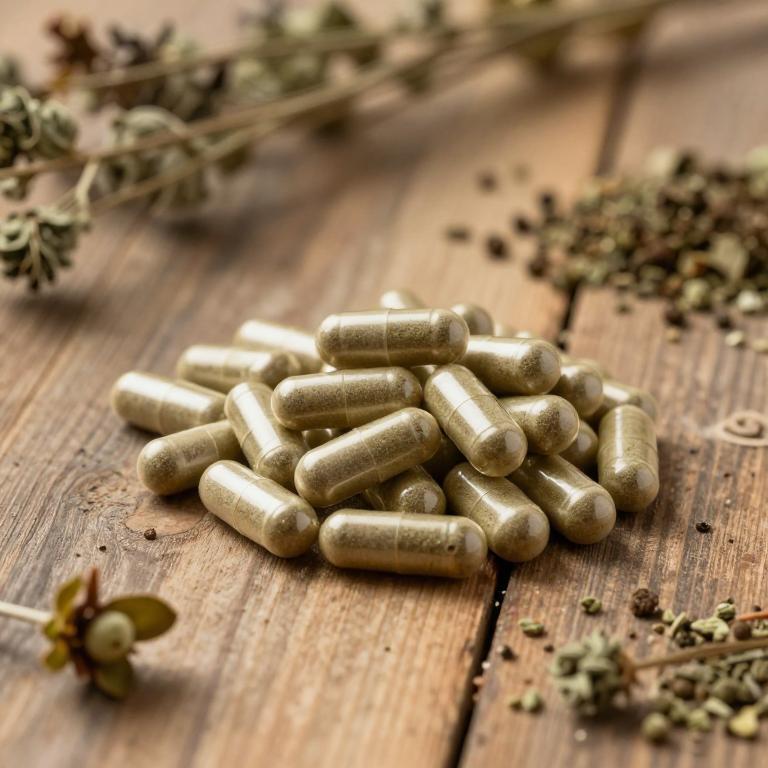
Pelargonium graveolens, commonly known as the geranium plant, is often used in herbal remedies for its potential anti-inflammatory and antimicrobial properties.
Herbal capsules containing Pelargonium graveolens are believed to support the immune system and may help alleviate symptoms of tonsillitis by reducing throat inflammation and fighting bacterial infections. These capsules are typically made from standardized extracts of the plant's leaves, which are rich in essential oils and bioactive compounds. While some studies suggest possible benefits, it is important to consult a healthcare professional before using them as a treatment for tonsillitis, especially if combined with other medications.
Overall, Pelargonium graveolens herbal capsules may serve as a complementary approach in managing tonsillitis, though their efficacy can vary and should not replace conventional medical care.
8. Licorice (Glycyrrhiza glabra)

Glycyrrhiza glabra, commonly known as licorice root, is a traditional herbal remedy often used in the form of capsules to support the treatment of tonsillitis.
The active compounds in licorice root, such as glycyrrhizin and flavonoids, possess anti-inflammatory, antimicrobial, and expectorant properties that can help reduce swelling and irritation in the throat. When taken as capsules, glycyrrhiza glabra may help alleviate symptoms like soreness, redness, and difficulty swallowing associated with tonsillitis. However, long-term use of licorice root capsules can lead to side effects such as hypertension and electrolyte imbalance due to its effect on cortisol levels.
It is important to consult a healthcare professional before using licorice root capsules, especially for individuals with existing health conditions or those taking other medications.
9. Salvia (Salvia officinalis)
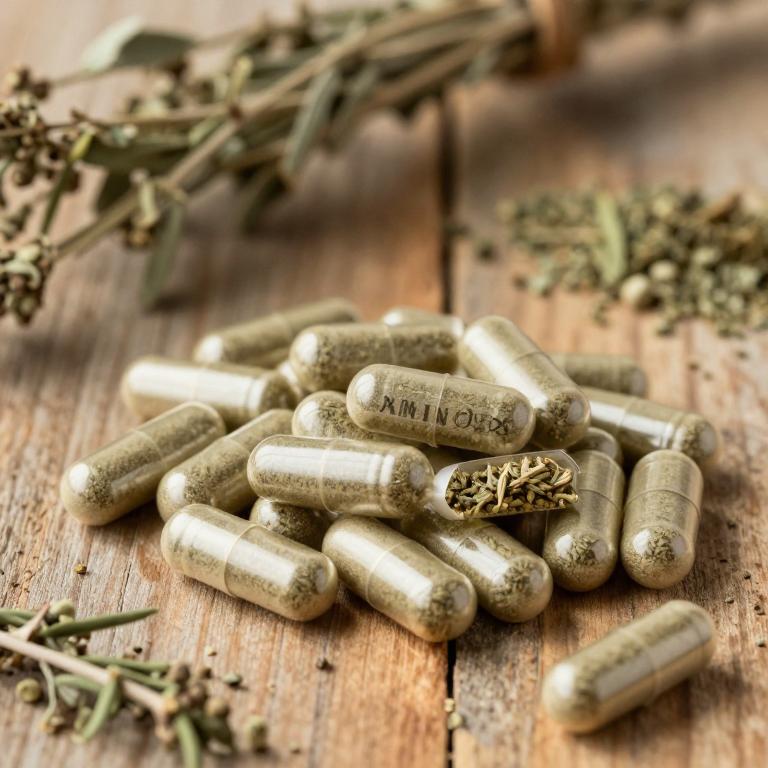
Salvia officinalis, commonly known as sage, has been traditionally used for its antimicrobial and anti-inflammatory properties, making it a potential natural remedy for tonsillitis.
Herbal capsules containing salvia officinalis may help reduce throat inflammation and alleviate symptoms such as pain and swelling in the tonsils. Studies suggest that the essential oils in sage, particularly thujone and camphor, can inhibit the growth of bacteria that often contribute to tonsillitis. While more research is needed, some individuals use these capsules as a complementary therapy to support conventional treatments.
It is important to consult a healthcare professional before using salvia officinalis, especially for prolonged or severe cases of tonsillitis.
10. Rosemary (Rosmarinus officinalis)
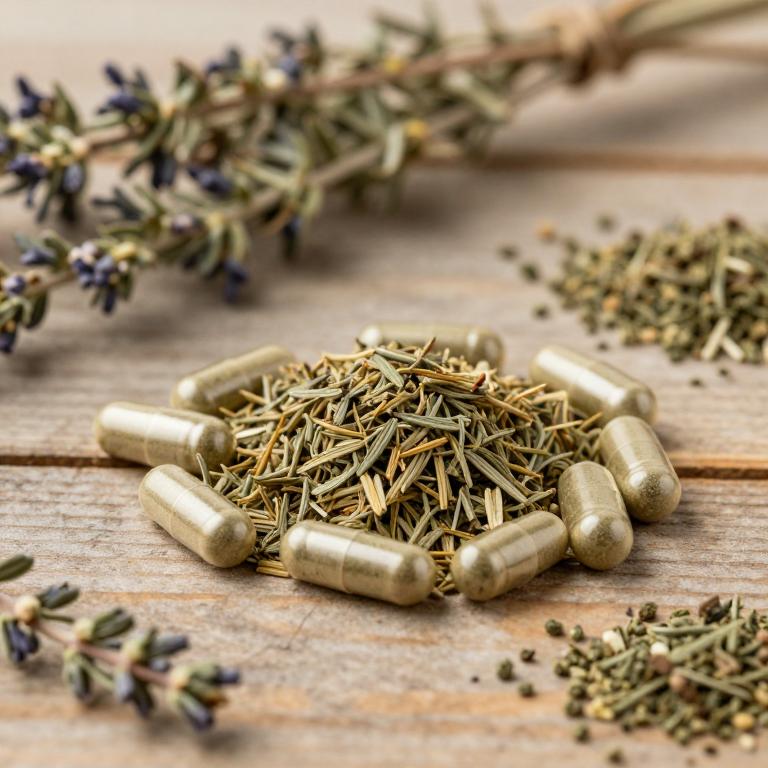
Rosmarinus officinalis, commonly known as rosemary, has been traditionally used for its antimicrobial and anti-inflammatory properties, making it a potential natural remedy for tonsillitis.
Herbal capsules containing rosemary extract may help reduce throat inflammation and alleviate symptoms such as soreness and swelling in the tonsils. Studies suggest that the active compounds in rosemary, such as carnosic acid and rosmarinic acid, possess antibacterial effects that could inhibit the growth of pathogens associated with tonsillitis. However, while rosemary may offer supportive relief, it should not replace conventional medical treatments for severe or persistent cases.
As with any herbal supplement, it is important to consult a healthcare professional before use, especially for individuals with allergies or existing health conditions.